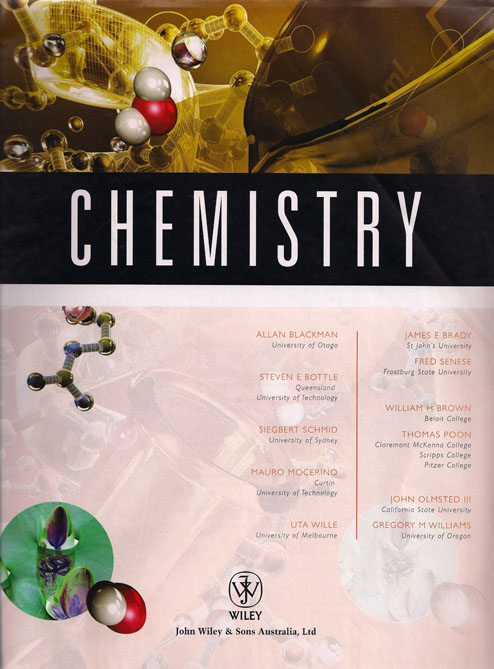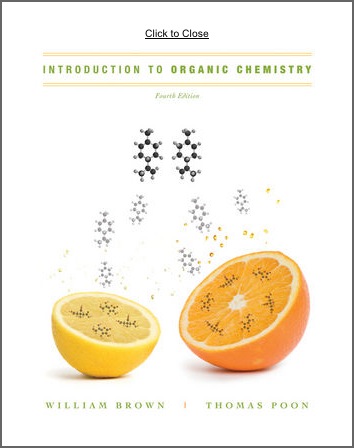Thomas Poon
Professor
of Chemistry
Home
Teaching
Research
Advising
Research Group
Genealogy
Letters of Rec.
Current Schedule
C.V.
---Other Links---
OCHeM.com
About me
E-mail me
|
|
COURSES TAUGHT |
| |
CHEM51L (Topics in Forensic Science):
As its name suggests, this course will explore the
science behind the field known as criminology (a.k.a.
forensic science). The focus is on chemical and physical
methods used in
modern crime detection.
Topics change from year to year, but have recently
included drug analysis, serology, fingerprinting,
document
examination, DNA
analysis, nuclear chemistry, explosives, and arson
investigation will be examined. There are six labs
associated with the course (attentance is mandatory)
in which we actually get to perform experiments using
some of the techniques and theories we cover in lecture.
Enrollment is limited to 32 students.
There are no prerequisites (this is a nonmajors course).
Laboratory fee: $50. Offered annually (usually in
the spring). |
| |
| |
CHEM116L & 117L (Organic Chemistry I & II):
The chemistry of organic compounds developed from
considerations of bonding, structure, synthesis,
and mechanisms of reaction. Almost every other science
course a chemistry or biology major will take involves
organic molecules in some way. This is the course
you take if you are premed, prevet, predental, etc.,
and of course, the course you take if you plan on
majoring in chemistry, biochemistry, or molecular
biology. Prerequisite: Chemistry 15L or equivalent;
Chemistry 116 is the prerequisite for 117. Laboratory
fee: $50 per semester. Offered annually. |
| |
|
|
|
| |
|
Visit OCHeM.com for
resources on learning organic chemistry. |
|
| |
| |
CHEM126L & CHEM127L (Advanced Laboratory
in Chemistry): A survey of advanced laboratory techniques
including
physical and chemistry methods, analytical chemistry
(especially instrumental methods), and synthesis
and characterization of compounds. Prerequisites:
Chemistry 15L, 117L, Physics 34 (or 31), and Math
31. 126L is prerequisite for 127L except with permission
of instructor. Chemistry 121L, 122L (P-Chem) recommended
as co-requisite. Enrollment limited to 18. Laboratory
fee: $50. Offered annually. |
| |
| |
CHEM136 (Modern Molecular Photochemistry): This
half course will explore the interaction of light
with molecules and the chemical and physical changes
that
result. Emphasis will be placed on modern applications
of photochemistry in the areas of synthesis, mechanistic
studies, medicine, and materials science. Enrollment
limited to 20. |
| |
| |
FYS017PZ (Science of Identity): This Pitzer College first-year seminar will explore the role of science in society's continual desire to categorize the identity of the individual. We will examine scientific topics (e.g. DNA, performance enhancing chemicals, etc.), discuss how they juxtapose with societal constructs (e.g. race, gender roles, etc.), and evaluate the consequences (e.g. discrimination, consumer trends, etc.) of these juxtapositions. Writing intensive. |
| |
| PUBLICATIONS IN CHEMICAL EDUCATION (student coauthors underlined) |
| |
A. Blackman, S. E. Bottle, S. Schmid, M. Mocerino, U. Wille, J. E. Brady, F. Senese, W. H. Brown, T. Poon, J. Olmsted III, G. M. Williams, “Chemistry,” John Wiley & Sons Australia, Ltd.: Milton Qld, (2008) |
| |
|
 |
This textbook is a multi-author work created for the Australian and New Zealand market. The book combines aspects of general chemistry, organic chemistry, and biochemistry. |
|
|
| |
|
| |
W. Brown and T. Poon, Introduction to Organic
Chemistry, 4th ed. John Wiley
and Sons, Inc.: Hoboken, NJ (2010). |
| |
|
 |
This textbook provides
an introduction to organic chemistry for students
who require the fundamentals of organic
chemistry as a requirement for their major. A special
effort is made to show the interrelationship between
organic chemistry and other areas of science, particularly
the biological and health sciences. The text illustrates
the use of organic chemistry as a tool in these
sciences; it also stresses the organic compounds,
both natural and synthetic, that surround us in
everyday life: in pharmaceuticals, plastics, fibers,
agrochemicals, surface coatings, toiletry preparations
and cosmetics, food additives, adhesives, and elastomers.
The textbook is also available in Italian, Japanese,
and Chinese. |
|
|
| |
|
| |
T. Poon and R. Ovadia, "Use of Tactile Learning
Aids for the Visually Impaired in a First Semester
Organic Chemistry Course," Journal of Chemical
Education, 2008, 85, 240-242. |
| |
|
This journal article
describes two techniques for working with students
with low vision in a first semester organic chemistry
class. |
|
| |
|
| |
H. P. Moeur, A. Zanella, and T. Poon “An
Introduction to UV-Vis Spectroscopy Using Sunscreens” Journal
of Chemical Education, 2006, 83,
769. |
| |
|
This journal article
describes an experiment that uses sunscreens to
introduce students in 1st year chemistry to the
Beer-Lambert Law and spectroscopy. |
|
| |
|
| |
T. Poon “The Big Picture. A Classroom Activity
for Organic Chemistry.” Journal of Chemical
Education, 2004,
81, 513-514. |
| |
|
This journal article
presents a fun activity in which students of organic
chemistry can participate. |
|
| |
|
| |
T. Poon, B.P. Mundy, and T.W. Shattuck “The
Michael Reaction” Journal of Chemical Education, 2002, 79,
264-267. |
| |
|
This journal article
details the history behind the Michael Reaction
and its discoverer. |
|
| |
|
| |
T. Poon, J.P. McIntyre, L.R. Eller, C.M. Norris,
J.A. Oelrich, T.A. Pluim, C.F. Eller, K.M. Jones,
W. Massello, A. Dorigo, M.A. Davis, H.K. Izumi, K.H.
Kelley, M.L. Melamed, S.E. Poplawski, J.M. St. Clair,
M.P. Stokes, W.C. Wheeler, E.E. Wilkes “The
Preparation of a UV Light Absorbing Polymer: A Project-Oriented
Laboratory Experiment for the Introductory Organic
Chemistry Curriculum” Journal of Chemical
Education, 1999,
76, 1523-1524. |
| |
|
This journal article
presents a multi-day organic lab experiment that
introduces organic chemistry students to synthesis,
product isolation, and spectroscopy. |
|
| |
|
| |
T. Poon, S.A. Bodolosky, C. Norris “An Integrated
Molecular Modeling and Melting Point Experiment for
the Organic Chemistry Laboratory” Journal
of Chemical Education, 1999, 76,
983-984. |
| |
|
This journal article
combines computational predictions with laboratory
melting point determinations. |
|
| |
|
| |
T. Poon, B.P. Mundy, J. McIntyre, L. Woods, F.
Favaloro, C. Goudreau "Kinetic versus Thermodynamic
Control in the Dehydration of 2-Methylcyclopentanol" Journal
of Chemical Education, 1997, 74,
1218-1219. |
| |
|
This journal article
describes an experiment that illustrates kinetic
versus thermodynamic control in a dehydration reaction
to form an alkene. |
|
| |
|
| |
S.P. West, T. Poon, J.L. Anderson, M.A. West, C.S.
Foote “Extraction, Isolation, and Characterization
of Fullerene C60” Journal of Chemical Education,1997, 74,
311-2. |
| |
|
This article describes
a simple experiment for obtaining C60 from commercially
available soot. |
|
Last Updated
12/21/11
|
© 2007 Thomas
Poon
The opinions expressed here are those of Thomas Poon, and do not represent official policies of Claremont McKenna, Pitzer, or Scripps Colleges. |
|